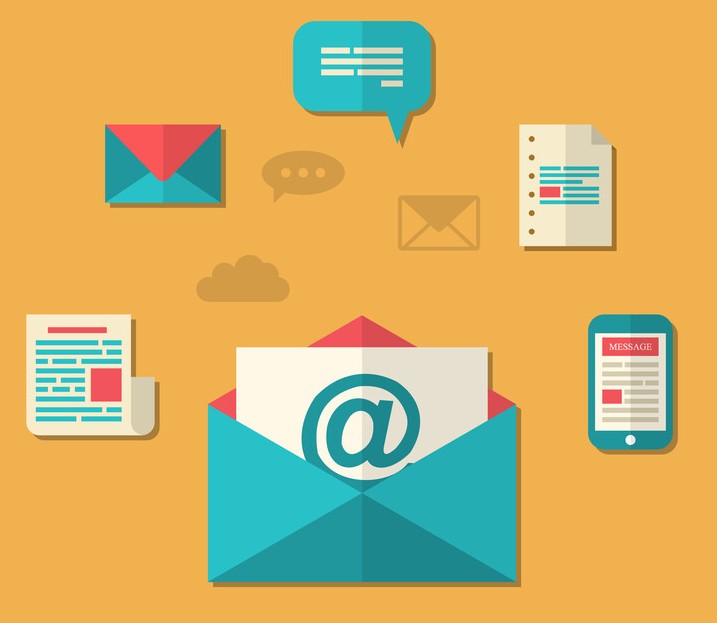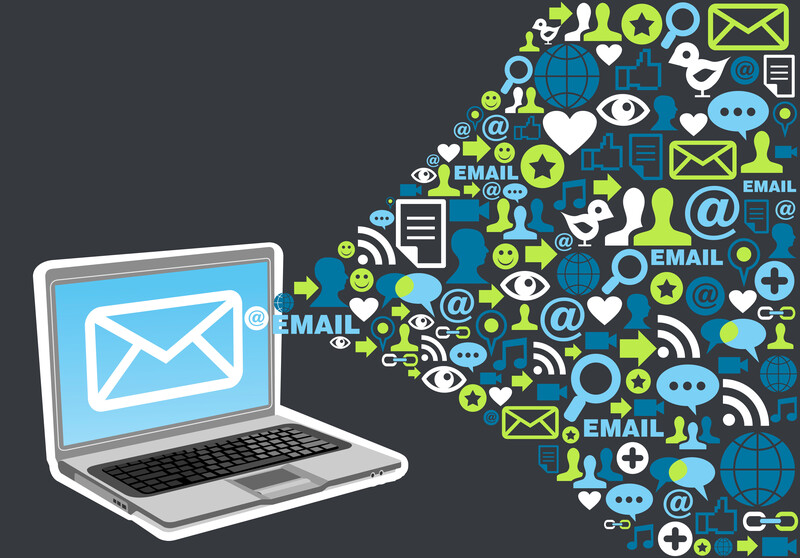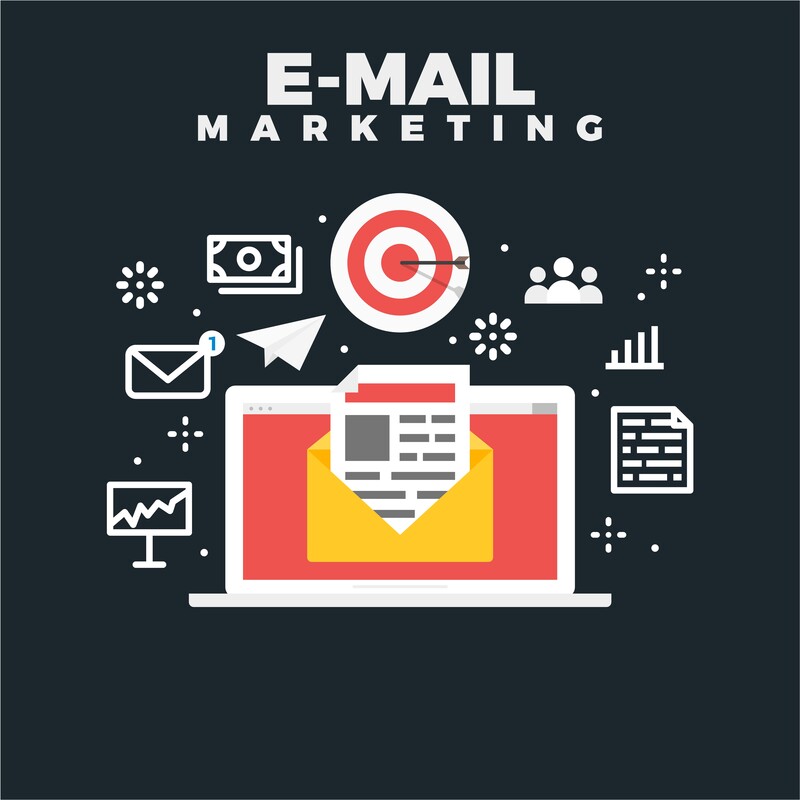Understanding B2B Email Marketing
Email marketing for B2B is a powerful communication tool that allows businesses to reach out to other businesses in a professional and targeted manner. Compared to traditional marketing channels, email marketing offers the advantage of being cost-effective and highly customizable.
In the world of B2B, developing strong relationships with your clients and prospects is crucial to your success. Email marketing enables you to establish and nurture these relationships by providing valuable content and offers, tailored to your audience’s specific needs and interests.
Moreover, email marketing for B2B offers several other benefits, such as increasing brand awareness, generating leads, and driving website traffic. When implemented correctly, it can deliver impressive results and significantly boost your business’s growth.
Importance of B2B Email Lists
The foundation of any successful email marketing campaign is a high-quality, accurate, and up-to-date B2B email list. This list comprises the contact information of potential clients or partners who have expressed interest in your products, services, or content.
Having a strong B2B email list is crucial because it allows you to reach out to the right audience, ensuring that your marketing efforts are not wasted on irrelevant recipients. Also, a well-maintained list can help improve your email deliverability and open rates, leading to better engagement.
Moreover, segmenting your B2B email list based on various criteria (such as industry, company size, or job title) enables you to send targeted and personalized content to each group, increasing the relevance of your campaigns.
Building a High-Quality B2B Email List
Creating a high-quality B2B email list requires time, effort, and a strategic approach. Here are some tips to help you build a robust list of contacts:
- Leverage your website: Use lead capture forms on your website to collect contact information from visitors interested in your offerings. Offer valuable resources, such as whitepapers or industry reports, in exchange for their email address.
- Host webinars and events: Organize webinars and events on relevant industry topics to attract your target audience. Encourage registration by offering exclusive insights, expert advice, or networking opportunities.
- Use social media: Promote your content and lead magnets on social media platforms where your target audience is active. Engage with them through comments and private messages.
- Partner with other businesses: Collaborate with complementary businesses to co-create and share content, expanding your reach and increasing the chances of adding new contacts to your list.
- Attend industry events: Participate in trade shows, conferences, and networking events to connect with potential clients and partners. Collect their contact information and follow up with a personalized email after the event.
Remember to always obtain permission from your contacts before adding them to your email list and adhere to data protection regulations, such as GDPR, to avoid any legal issues.
B2B Email Automation: Streamline Your Campaigns
B2B email automation is the process of automating repetitive and time-consuming tasks in your email marketing campaigns, such as sending welcome emails, follow-ups, or promotional offers. By using email automation software, you can set up triggers and workflows that automatically send relevant content to your contacts based on their actions, preferences, or specific dates.
There are several benefits to incorporating B2B email automation into your strategy:
- Save time and resources: Automating your email campaigns frees up time for your marketing team to focus on other essential tasks, such as content creation and strategy development.
- Improve personalization: Email automation allows you to send personalized content based on your contacts’ behavior, interests, or demographics, enhancing the relevance and effectiveness of your campaigns.
- Increase engagement: By sending timely and tailored content, you can boost your email open and click-through rates, ultimately leading to higher conversions and sales.
- Measure performance: Most email automation platforms offer detailed analytics and reporting tools, enabling you to track the success of your campaigns and optimize them for better results.
Crafting Effective B2B Nurture Campaigns
Nurture campaigns are an essential component of email marketing for B2B. These campaigns aim to guide your leads through the buyer’s journey by providing them with valuable content and offers at each stage. To create an effective B2B nurture campaign, consider the following steps:
- Map out your buyer’s journey: Understand the different stages your leads go through before becoming a customer, such as awareness, consideration, and decision. Identify the information they need and the questions they might have at each stage.
- Segment your leads: Group your leads based on their position in the buyer’s journey, demographics, behavior, or other relevant criteria. This will help you target them with the most appropriate content.
- Create relevant content: Develop content that addresses the needs and pain points of your leads at each stage of the buyer’s journey. Offer helpful resources, such as blog posts, case studies, or product comparisons, that demonstrate the value of your offerings.
- Set up automated workflows: Use email automation software to schedule and send targeted emails to your leads based on their segment and actions, ensuring that they receive the right content at the right time.
- Monitor and optimize: Regularly analyze the performance of your nurture campaigns and make adjustments as needed to improve their effectiveness.
B2B Nurture Campaign Examples for Inspiration
Looking for inspiration to create your B2B nurture campaign? Here are some examples of successful campaigns that you can learn from:
- Educational content series: Share a series of informative articles or guides on a specific topic, helping your leads solve a problem or gain industry knowledge. This approach positions your company as an expert and builds trust with your audience.
- Product demo or trial: Offer a free trial or product demo to your leads, allowing them to experience your product or service firsthand. This can help them understand the benefits and features of your offerings, making them more likely to convert.
- Case studies and testimonials: Share real-life success stories from your existing clients to demonstrate how your product or service can deliver results. This type of social proof can be a powerful persuader for potential customers.
- Webinar invitations: Invite your leads to attend a webinar on a relevant industry topic or product demonstration. This can help deepen their understanding of your offerings and provide an opportunity for them to ask questions and interact with your team.
- Promotional offers: Send exclusive discounts or special offers to your leads, encouraging them to take the next step in the buyer’s journey and make a purchase.
Best Practices for Email Marketing in B2B
To maximize the success of your email marketing for B2B, consider implementing the following best practices:
- Write compelling subject lines: A captivating subject line is crucial for increasing your email open rates. Keep it short, relevant, and action-oriented to grab your recipients’ attention.
- Personalize your content: Tailor your emails to your contacts’ preferences, behavior, or demographics to enhance engagement and boost results.
- Optimize for mobile: Ensure that your emails are responsive and look great on all devices, as many people check their emails on their smartphones or tablets.
- Test and optimize: Regularly test different email elements, such as subject lines, send times, or design, to determine what works best for your audience and improve your campaigns’ performance.
- Monitor key metrics: Track important email marketing metrics, such as open rates, click-through rates, and conversions, to measure the success of your campaigns and identify areas for improvement.
Conclusion: Embrace the Power of B2B Email Marketing
In conclusion, email marketing for B2B is a powerful tool that can help you build and nurture relationships with your clients and prospects, generate leads, and drive business growth. By following the tips and best practices outlined in this guide, you can create effective campaigns that deliver impressive results.
Recap
To sum up, B2B email marketing offers numerous benefits, including:
- Cost-effectiveness
- Highly customizable content
- Improved brand awareness
- Lead generation
- Increased website traffic




